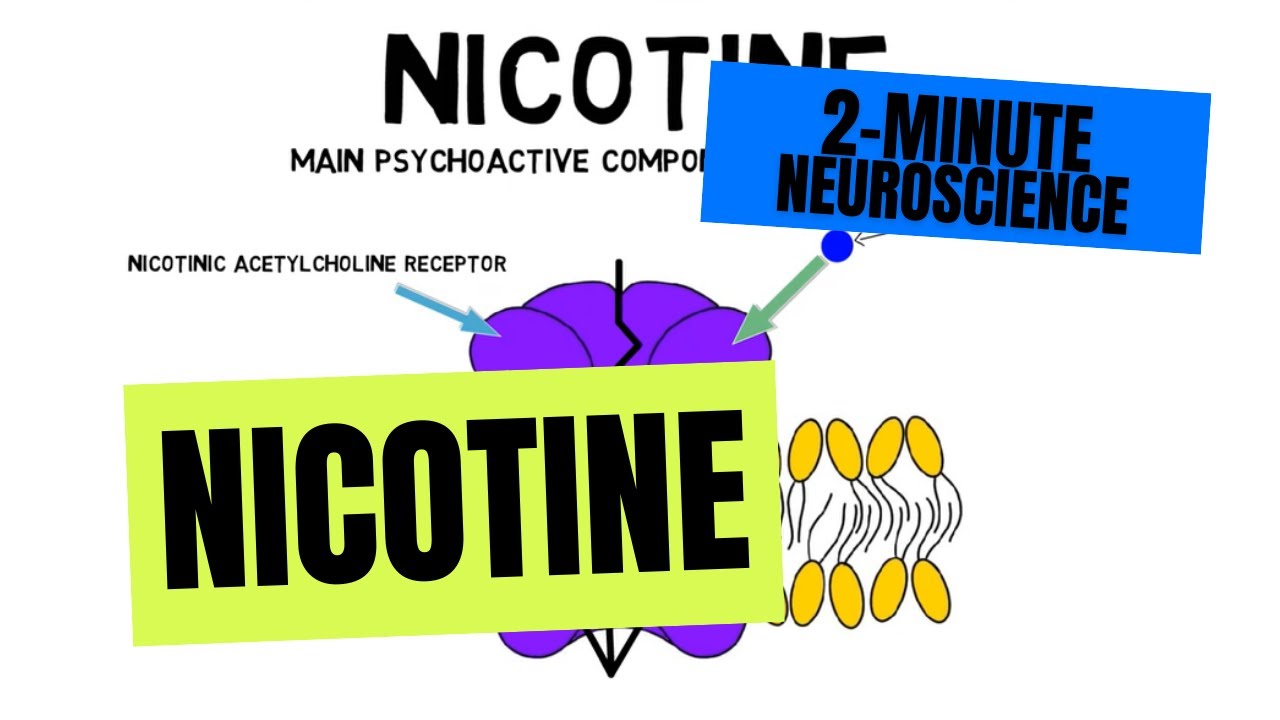Nicotine addiction is a pervasive public health issue affecting millions worldwide. Here at Mothers Against Addiction, we’ve seen countless families grappling with this potent addiction. Our mission is to support parents dealing with children’s addictions and offer guidance to those who have tragically lost their loved ones. Let’s dive deep into understanding this addiction, recognizing the signs, and exploring effective treatments.
Recognizing Nicotine Addiction Symptoms
Nicotine addiction manifests in various ways, subtly weaving its dependence into daily habits. To effectively support a loved one grappling with this addiction, we must understand its signs.
Behavioral Signs
Physical Symptoms
Effective Treatments for Nicotine Addiction
Treating nicotine addiction requires a well-rounded approach, incorporating mainstream and cutting-edge therapies. Let’s explore some proven methods.
Nicotine Replacement Therapy (NRT)
NRT helps alleviate withdrawal symptoms by providing a controlled dose of nicotine without the harmful chemicals found in tobacco. Notable NRT products include:
Prescription Medications
Medications like Varenicline (Chantix®) and Bupropion (Zyban®) have brought significant advancements in nicotine addiction treatment.
Behavioral Therapy
Addressing the psychological facets of nicotine addiction, behavioral therapy, including cognitive-behavioral therapy (CBT), is crucial.
Cutting-edge Approaches
Innovations in neuroscience and technology present new avenues for tackling nicotine addiction.
| Aspect | Details |
| Signs of Addiction | Grumpy, anxious, or easily angered when not using tobacco; Trouble controlling smoking habits; Frequent cravings. |
| Symptoms of Withdrawal | Physical and mood-related symptoms: strong cravings, anxiety, irritability, restlessness, difficulty concentrating, depressed mood, frustration, anger, increased hunger, insomnia, constipation or diarrhea. |
| Psychoactive Effects | Induces pleasure and reduces stress and anxiety; Modulates arousal levels; Controls mood; Improves concentration, reaction time, and task performance. |
| Side Effects of Nicotine | Dizziness, racing heartbeat, headaches; Toxic substance that can cause poisoning. |
| Dependence Mechanism | Nicotine releases dopamine in brain regions similar to other addictive drugs; Involves physical and psychological factors. |
| Prevention | Avoid using nicotine products including e-cigarettes; Avoid situations where you might be tempted to use nicotine. |
| Effective Treatments | |
| Recovery Process | Once smoking stops, nicotine receptors in the brain normalize; Craving responses lessen in frequency and intensity over time. |
| Recommendation for Quitting | Time quitting to periods with a lighter mental load (e.g., weekends); Concentration levels return to normal after a few weeks. |
Alternative and Complementary Methods
Incorporating alternative therapies can enhance primary treatment strategies for nicotine addiction.
Mindfulness and Meditation
Practices like Mindfulness-Based Stress Reduction (MBSR) help reduce anxiety and enhance self-control, aiding individuals in effectively managing withdrawal symptoms.
Acupuncture
Evidence suggests that acupuncture may help reduce the severity of withdrawal symptoms and support overall well-being during recovery.
Support Systems and Resources
Effective support systems are integral to the recovery journey.
Family and Social Support
Encouragement and understanding from family and friends can significantly impact recovery. Participating in family therapy or support groups, like Nicotine Anonymous, can strengthen these critical bonds.
Online Communities
Platforms like Reddit’s r/stopsmoking offer a global community where individuals share experiences, advice, and encouragement, creating a supportive network available 24/7.
Motivational Insights
Hearing success stories from individuals who’ve overcome nicotine addiction can inspire perseverance.
Future Directions in Nicotine Addiction Treatment
With ongoing research and technological advancements, the future holds promising prospects for nicotine addiction treatment.
Personalized Medicine
Genetic profiling could lead to personalized treatment plans, tailoring therapies to an individual’s unique genetic makeup for more effective outcomes.
Wearable Technology
Innovative wearables that monitor biochemical markers can provide real-time feedback and personalized interventions to support quitting efforts.
Empowering Change Together
Nicotine addiction is a public health challenge, but hope lies in our ability to understand, support, and innovate. Through comprehensive awareness, effective treatments, and unwavering support, we can help our loved ones break free from nicotine’s grip and embrace healthier futures. Let’s continue to fight together, ensuring no one feels alone on their journey toward recovery.
At Mothers Against Addiction, we are dedicated to offering compassionate care through our Four Daughters Compassionate care initiative. Together, we can turn the tide against nicotine addiction and foster a healthier, brighter future for our children. Visit our website for more resources on behavioral addiction and nicotine addiction recovery.
Nicotine Addiction: Signs and Effective Treatments
Understanding nicotine addiction is crucial not just for smokers but also for their families and friends who may be affected by second-hand smoke and the struggles of addiction. Nicotine addiction grips millions worldwide, making it one of the toughest habits to break. Did you know that nicotine hits the brain within 10 seconds of inhalation, creating a rapid and intense addiction? The immediate rush is why so many people find it challenging to quit.
Historical Tidbits
Believe it or not, the plant that produces nicotine, tobacco, has been chewed or smoked in some form for thousands of years. Native American tribes used tobacco in ceremonial practices long before European settlers arrived. With the advent of commercial cigarettes in the late 19th century, nicotine addiction went from ritualistic use to widespread recreational use. While we’re here, have you ever wondered about seemingly unrelated trivia like the gale warning meaning and how it could metaphorically resemble the stormy journey of overcoming addiction?
The Cost Behind Nicotine Addiction
Nicotine addiction doesn’t only affect health; it hits the wallet hard too. On average, a pack-a-day smoker spends nearly $2,000 annually on cigarettes. These costs don’t include the potential financial burden of treating nicotine-related health issues. Curious fact: the economic impact of addiction is not just limited to nicotine. Fentanyl addiction, for example, has an even more devastating financial toll on families and healthcare systems.
Surprising Connections
Interestingly, nicotine addiction has various surprising side links. For instance, those battling one addiction, like nicotine, often struggle with others, such as marijuana addiction. These intertwined addictions can make quitting even more challenging. Speaking of connections, you’ll find the case search Baltimore useful if you’re interested in legal cases related to addiction, which could provide further insights into the socio-legal impacts.
Modern Treatments
Treatments for nicotine addiction have come a long way. From patches and gum to modern medications and counseling, there are numerous options to help people quit. Yet, like checking What are The current mortgage interest rates before buying a home, it’s crucial to explore different treatments and consult healthcare professionals to find the best fit. On another note, while it’s unlikely to help you quit smoking, knowing if Rick Hoffman is gay might be a lighter distraction and a way to humanize your struggle by finding companionship in the media you consume.
Navigating nicotine addiction is no easy feat, but with the right information and support, breaking free is absolutely possible!

How does a nicotine addiction feel?
If you’re addicted to nicotine, you might feel anxious, grumpy, or easily angered if you can’t use tobacco. You may have trouble controlling when, where, and how often you smoke and find yourself craving a cigarette many times throughout the day.
How long does it take to detox from nicotine?
Detoxing from nicotine usually takes a few weeks. You’ll experience withdrawal symptoms like irritability, cravings, and trouble concentrating, but these typically lessen as your body readjusts.
Can nicotine addiction be cured?
Nicotine addiction can be overcome with the right approach, though it’s tough. With behavioral therapies and FDA-approved medications, many people manage to quit successfully. Over time, your brain will start returning to normal, reducing cravings.
How to stop being addicted to nicotine?
To stop being addicted to nicotine, consider using a combination of behavioral therapies and FDA-approved medications like nicotine replacement therapies, bupropion, or varenicline. It’s also helpful to avoid triggers and have a solid support system.
What are the 5 stages of nicotine addiction?
The five stages of nicotine addiction are initial use, regular use, tolerance, dependence, and addiction. Each stage increases the likelihood of continued tobacco use and the severity of withdrawal symptoms if you try to quit.
What are the six signs of nicotine addiction?
The six signs of nicotine addiction include frequent cravings, irritability and anxiety when not using tobacco, difficulty controlling usage, thinking about tobacco often, experiencing physical symptoms when not using it, and continuing to use despite negative consequences.
How do you flush nicotine out fast?
There’s no fast track for flushing nicotine out of your system. Drinking lots of water, exercising, and eating a healthy diet can help speed up the detox process slightly by boosting your metabolism.
What is the hardest stage of nicotine withdrawal?
The hardest stage of nicotine withdrawal is usually the first week. You’ll face intense cravings and symptoms like irritability, anxiety, and difficulty concentrating. Staying strong during this period is crucial.
When will I stop craving nicotine?
Cravings typically subside significantly after the first few weeks. They become less frequent and intense over time, and many people find them manageable or gone entirely within a few months.
Is nicotine worse than caffeine?
Nicotine is generally considered more addictive than caffeine. Nicotine stimulates the release of dopamine in the brain, which strongly reinforces its use, while caffeine mainly affects alertness and energy with milder withdrawal symptoms.
Can your brain recover from nicotine addiction?
Your brain can recover from nicotine addiction. Over time, the number of nicotine receptors will normalize, and your brain’s reward system will adjust, reducing cravings and helping you feel more balanced.
Why is nicotine so hard to quit?
Nicotine is hard to quit because it triggers the release of dopamine, which makes you feel good and reinforces the habit. This creates a strong psychological and physical dependency.
What to eat to stop nicotine cravings?
Eating healthy snacks like fruits, vegetables, nuts, and seeds can help curb nicotine cravings. Foods high in fiber and protein can also keep you feeling full and satisfied.
When does nicotine withdrawal peak?
Nicotine withdrawal peaks within the first few days, typically around day three. Cravings and symptoms like irritability and anxiety are most intense during this time.
How to wean off nicotine?
Weaning off nicotine involves gradually reducing your intake, either by cutting down the number of cigarettes you smoke or lowering the nicotine level in your e-cigarette. Nicotine replacement therapies can also help manage withdrawal symptoms.
What does nicotine craving feel like?
A nicotine craving feels like a strong, almost irresistible urge to use tobacco. It can be accompanied by anxiety, restlessness, and a sense of unease until the craving is satisfied.
What do nicotine withdrawals feel like?
Nicotine withdrawals feel like a mix of strong cravings, irritability, anxiety, restlessness, difficulty concentrating, and sometimes physical symptoms like headaches or upset stomach.
How long do nicotine cravings last?
Nicotine cravings can last for several weeks to a few months, gradually decreasing in intensity and frequency. The most intense cravings usually occur within the first week.
How do you know if you’re addicted to nicotine vape?
If you find yourself often thinking about vaping, needing it to feel normal, or experiencing irritability and anxiety when you can’t vape, you may be addicted to nicotine vapes.




























